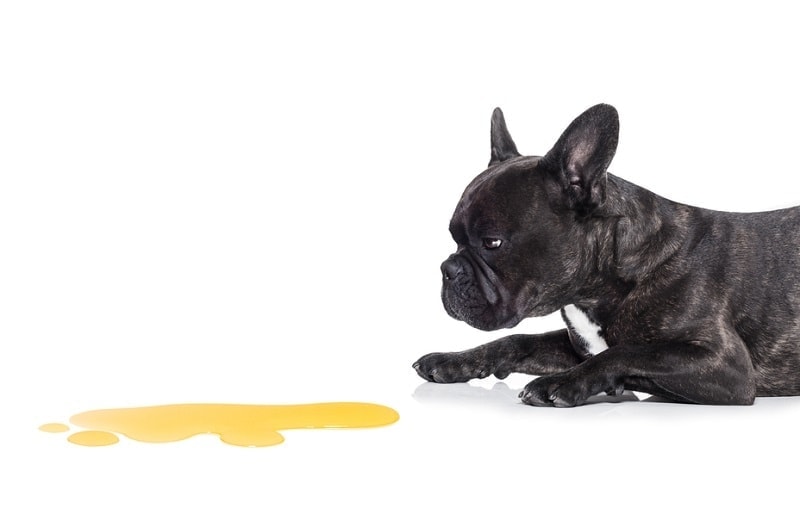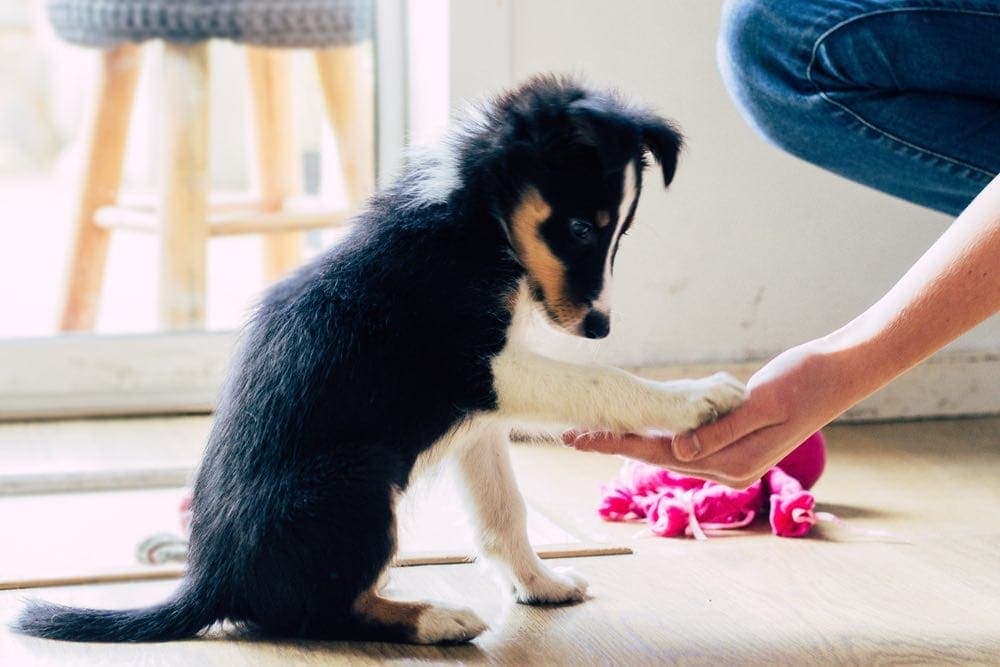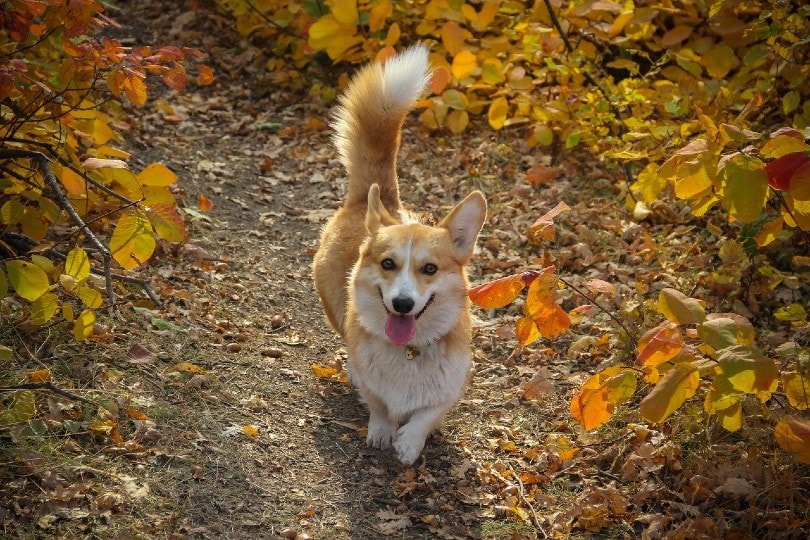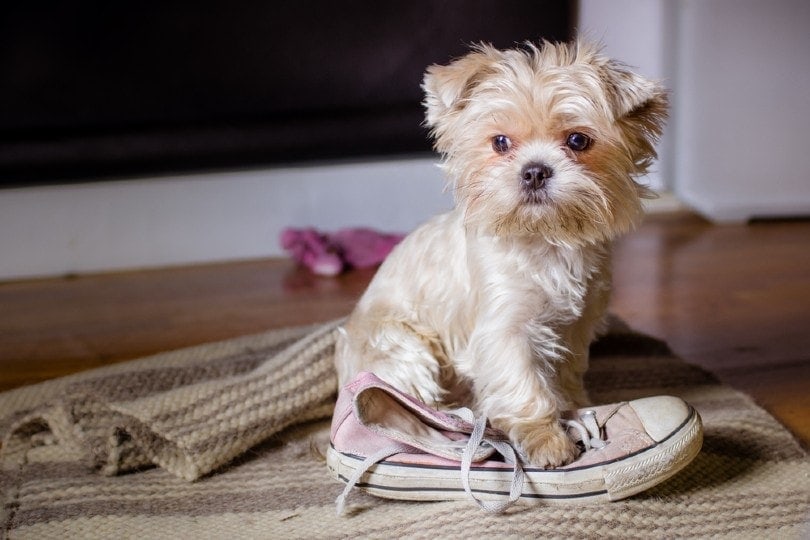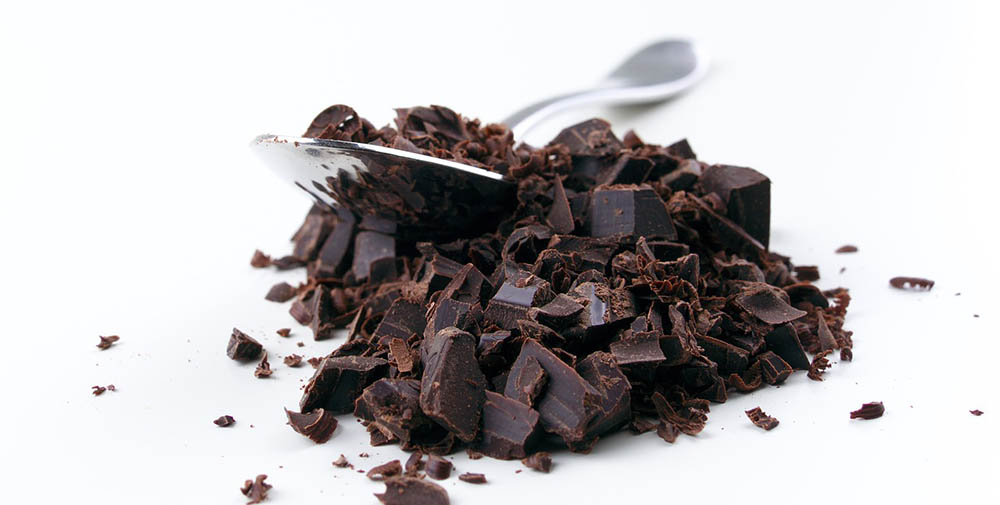This strange and unsightly habit is probably more common than you may think. It is perfectly normal for dogs to lick each other’s urine. They can use their vomeronasal organ to learn a lot about another dog by licking their urine.
However, a dog doesn’t need to learn about itself. So why would a dog lick up their urine? There are a few explanations for this, which we’ll cover in this article.
The 6 Reasons a Dog May Lick Its Own Pee
1. Dehydration
If a dog is dehydrated, they may be looking for liquids where ever they can. This can include their urine if they are incredibly thirsty. Dogs are often opportunistic for their food and water, which can put urine on the menu if they’re dying for something to drink.
Dogs do not have the extreme sense of taste that we have, so, likely, the urine doesn’t taste extremely bad like it would for us. Furthermore, the urine may be equally as off-putting to their nose as tap water, especially considering the number of toxins often found in drinking water.
- You might also like: 10 Best Dog Water Bowls: Reviews & Top Picks
2. Shame
If your dog knows they aren’t supposed to pee inside, they may try to cover it up. They may be afraid about whatever punishment is to come if you find out. Cleaning it up by licking may seem like the best solution to them.
Dogs who lick up their urine for this reason often don’t pee in the house very much. However, sometimes they are forced to. They could have really needed to go. Alternatively, they may have an underlying condition that made it impossible for them to hold it. Senior incontinence is a common reason for this sort of behavior.
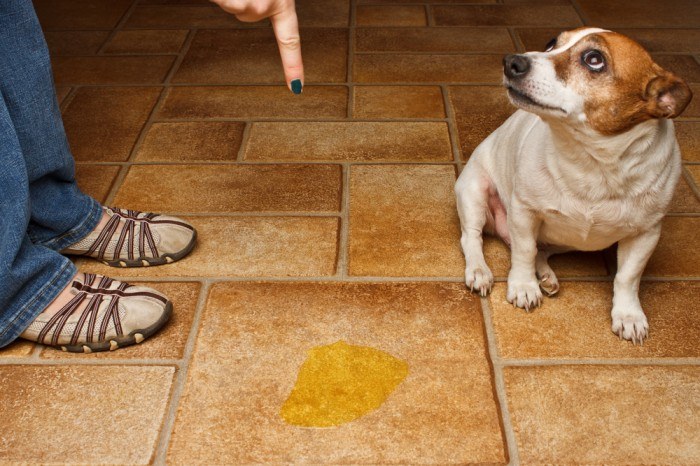
3. UTI
A UTI is a bacterial infection in your dog’s urinary tract. Common symptoms include blood in your pet’s urine, fever, frequent urination, accidental urination, and cloudy urine. Pain is often involved, but this can be difficult to determine whether your pet is in pain.
UTIs also lead to increased thirst, which can increase the likelihood that your canine will lick up their urine. The embarrassment factor combined with this increased thirst makes UTIs a probable reason that your dog may lick up its urine.
4. Cushing’s Syndrome
Cushing’s syndrome is quite rare in dogs. However, it does occur and can be tied to a canine licking up their urine. The first two symptoms that usually appear are increased thirst and frequent urination. Dogs that have to go more frequently may be more likely to have accidents in the house. Because they are thirsty more often, they may be more inclined to lick their pee as well.
If your dog suddenly starts peeing around the house and has increased thirst, they likely have some disease. For this reason, you should consider visiting a vet and having them checked out. Like urinating around the house and licking it up, sudden behavioral changes are common signs that something is wrong.
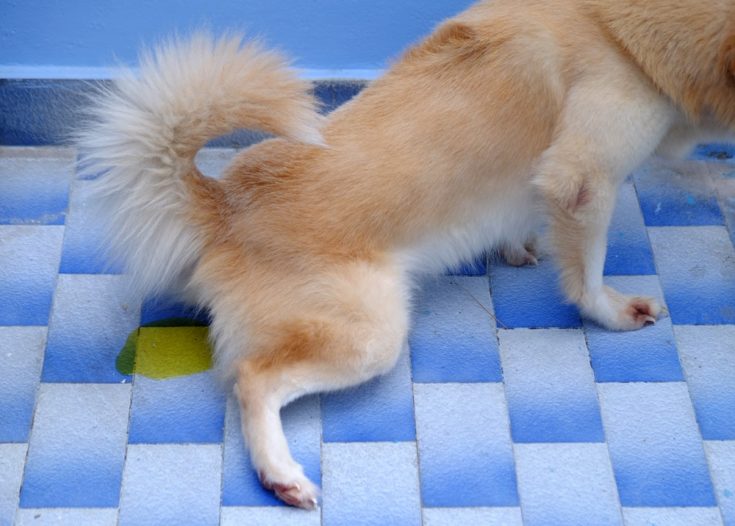
5. Pica
Pica is the urge to eat non-food items. It can occur in dogs, as well as in people. Dogs may be obsessed with eating a specific non-food item, or they may eat anything they can get their mouth around. Everyday non-food items include cloth, plastic, wood, paper, and rocks. However, anything can be the aim of the dog’s cravings, including urine.
Exactly why pica occurs is not heavily studied. It may be caused by behavioral reasons, like stress and boredom. A nutritional imbalance may also cause it. In an attempt to correct this imbalance, the body ends up craving non-food items.
Endocrine diseases can also cause pica, including thyroid disorders and diabetes. Diseases that may interfere with a dog’s absorption may also cause pica, as nutritional deficiencies can form. Sometimes, pica is a side effect of parasites.
How to Stop Your Dog from Licking Up Pee
Preventing your dog from licking up the urine will rely on figuring out why they’re licking it, to begin with. You have to treat the underlying cause of the behavior to end the behavior. Usually, a dog doesn’t lick their urine merely because they’re trying to be bad. They don’t understand that it’s bad behavior at all. Instead, they’re doing it for a specific reason.
We’ll look at some of the most common solutions in this section. However, not all of these will work for your canine. You’ll need to find the silver bullet.
1. Consider Retraining
Many dogs will need a refresher on housetraining at least once in their life. If your dog starts inappropriately going their business inside, then they may need a quick refresher. Because your dog already knows what’s going on, for the most part, this can usually be done by merely reinforcing their good habits. Treats when they go outside, and praise are usually all you need, as your dog will already understand that they need to go outside, to begin with.
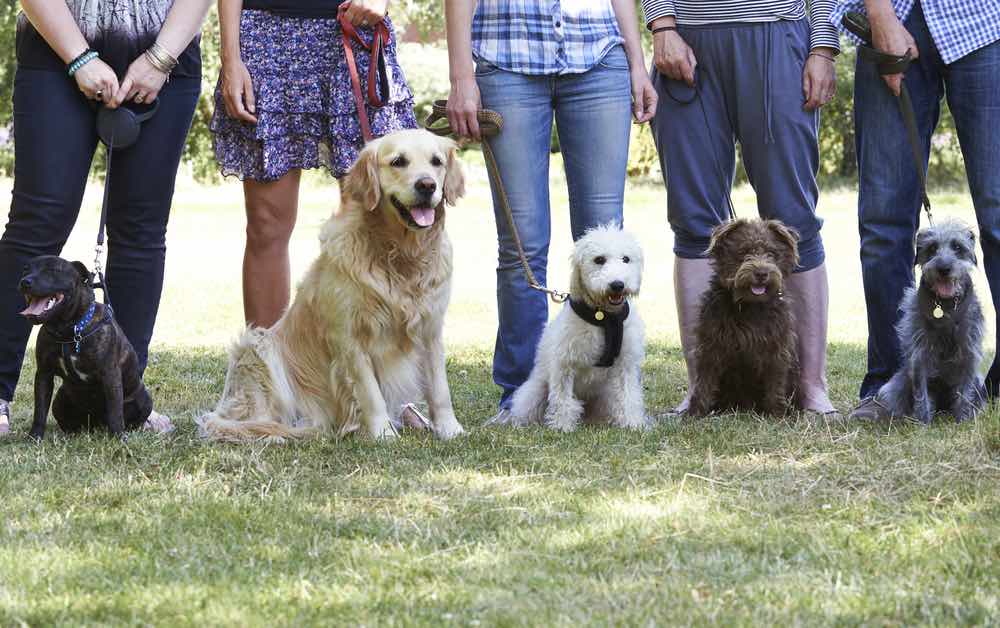
2. Ensure Your Dog Always Has Access to Fresh Water
Your dog should always have access to freshwater. This will help ensure that they are correctly hydrated. If they’re drinking their pee because they’re dehydrated, this can prevent that problem from occurring. Every dog should have access to fresh, clean water at all times. You shouldn’t put their water bowl right next to their food, as this can cause it to get dirty.
The water bowl should be kept somewhere where your dog always has access. In some cases, this may mean having two water bowls. If your dog spends much time outside, they will need one outside and inside.
3. Take Your Dog to the Vet
There are quite a few medical conditions that can cause a dog to have increased thirst and frequent urination. These two symptoms can combine to make your dog lick its urine.
UTIs
Urinary Tract Infections can cause your canine to lick their urine. Some common symptoms of UTIs include urinating more frequently and increased thirst because of the increased urination. Usually, the diagnosis of this disease involves a urinalysis.
Often, the treatment for uncomplicated UTIs is antibiotics. Sometimes, fluid therapy will be needed if your dog is dehydrated.
Cushing’s Disease
Cushing’s disease is challenging to diagnose. There is no particular test that a vet can do to diagnose Cushing’s. Instead, it is usually a process of elimination.
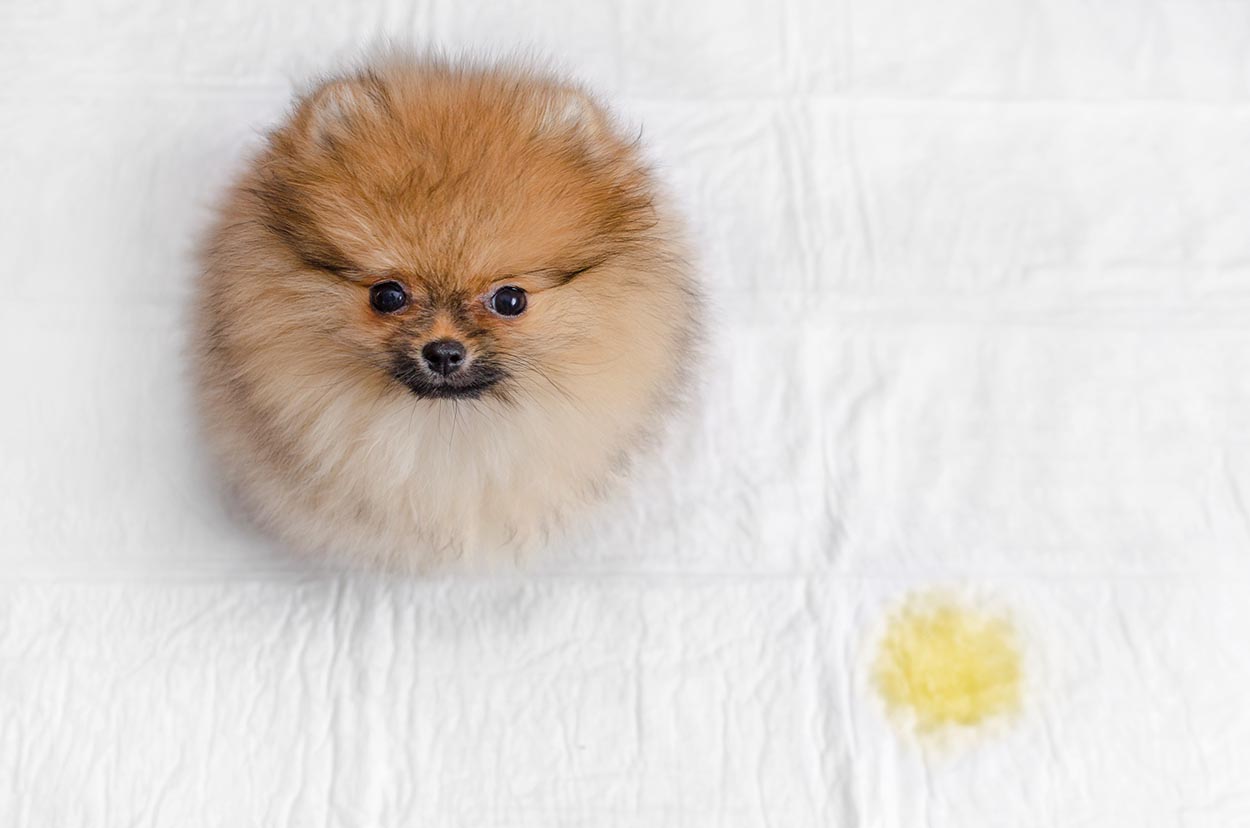
Cushing’s disease is caused by a tumor on your dog’s adrenal gland. In some cases, this tumor can be removed through surgery. However, in other cases, surgery may not be an option. Luckily, medication can be used as well, and most dogs live a pretty healthy life. Your dog will likely need regular vet visits and tests to ensure that the treatment is working as expected.
Pica
To treat pica, your Vet will need to identify the underlying cause. The cause needs to be treated before the pica will subside. Often, behavioral pica requires that the pet increases their exercise and mental stimulation. Most dogs do not receive enough exercise, which can cause stress and boredom pica.
Environmental enrichment is also recommended, such as food puzzles. A dog walker might be helpful if you are away from home for long periods each day. You should also limit your dog’s access to the foods they will eat. This isn’t easy to do with your dog’s urine.
If there is an underlying problem causing the pica, that will need to be treated. Usually, the pica will resolve itself once the underlying condition is dealt with.
Is Licking Pee Bad for Dogs?
While it may be quite disgusting for us, there isn’t anything bad about a dog drinking its urine. In most cases, dogs are not going to have access to enough urine to cause a problem. Therefore, there isn’t anything particularly wrong with your dog licking up its urine.
However, a dog licking pee can be a sign of some underlying conditions. If your dog is urinating around the house, that is a problem in itself. Often, inappropriate urination is also a sign of an underlying condition, especially if your dog was previously housetrained and hasn’t experienced any significant life changes.
Related Reads:
- How to Get Dog Pee Smell Out of Carpet Without Vinegar
- How To Get Dog Pee Smell Out of a Couch (10 Proven Methods)
- How to Get Dog Pee Smell Out of Laminate Flooring (6 Proven Methods)
Featured Image: Javier Brosch, Shutterstock

